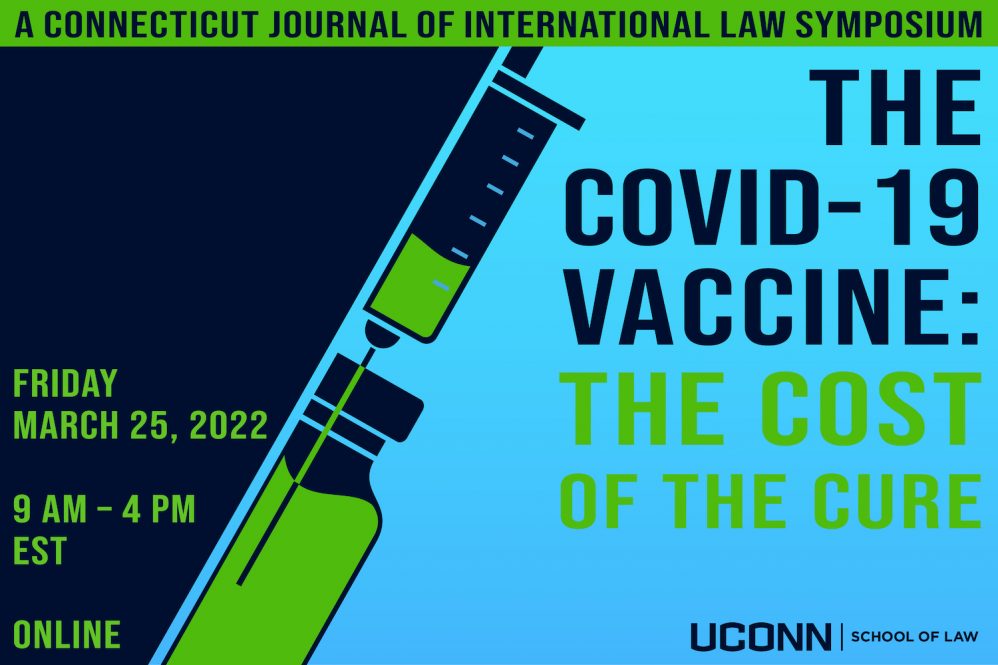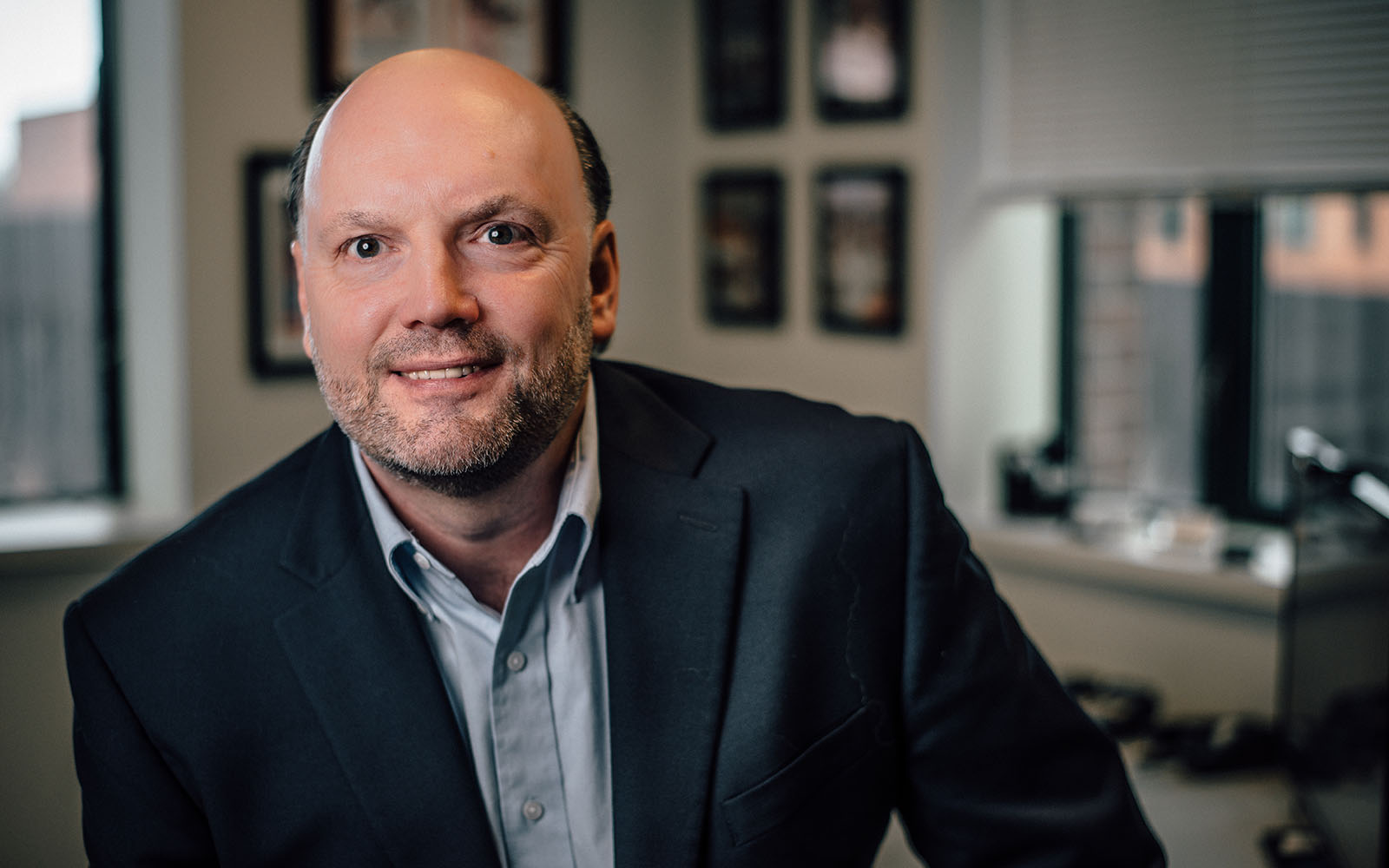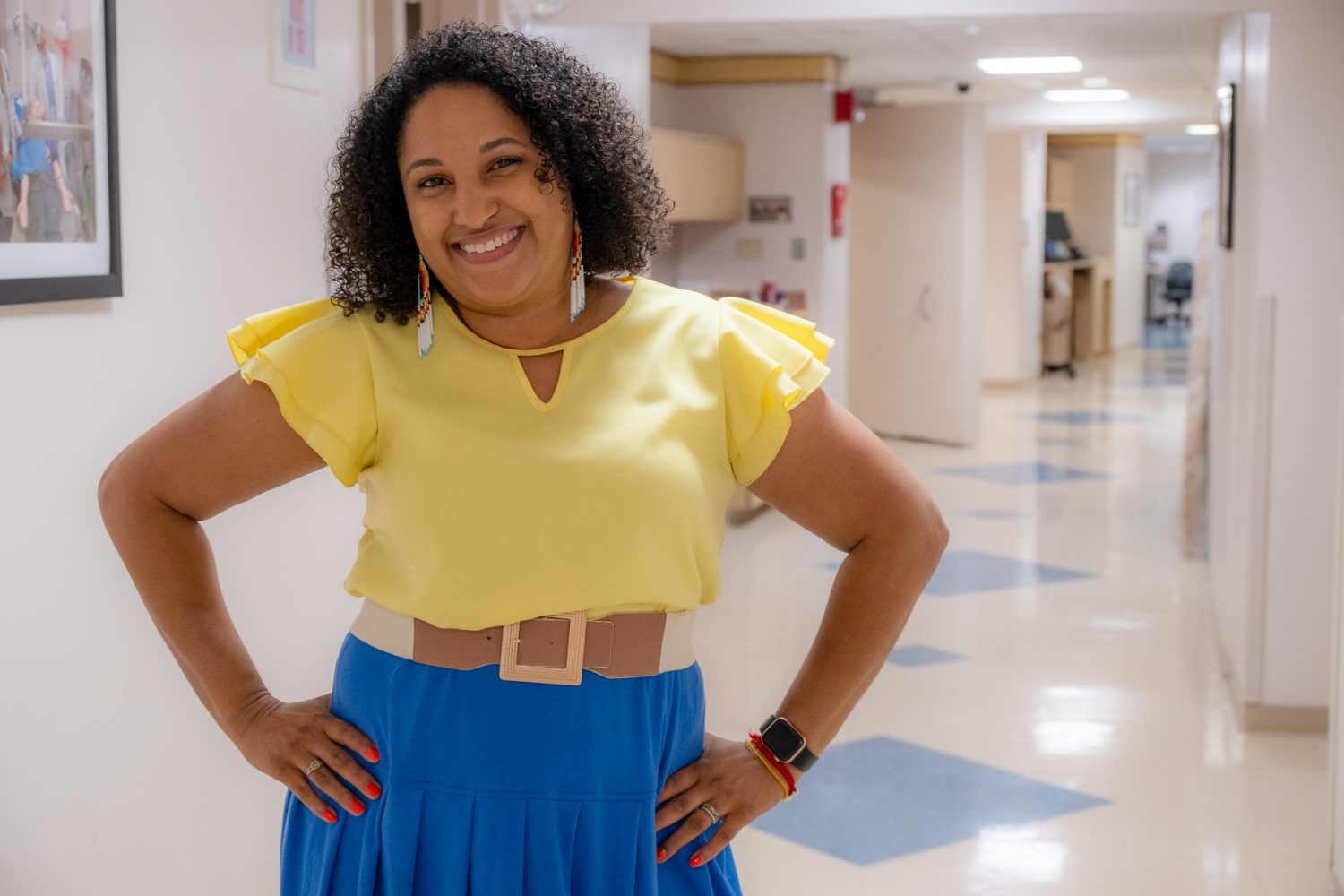While the COVID-19 pandemic created challenges across broad areas of the law, problems with vaccine distribution exposed health inequities and poor government infrastructure around the globe, scholars and legal practitioners agreed at a symposium organized by the Connecticut Journal of International Law.
The symposium, entitled “The COVID-19 Vaccine: The Cost of the Cure,” was held March 25, 2022 in the Reading Room of William F. Starr Hall and streaming online. The program was dedicated to the late Professor Richard Parker, a member of the UConn School of Law faculty for 26 years and a founder of the pioneering Semester in DC program.
Parker was a well-known scholar in environmental and administrative law whose latest work focused on the governmental response to the pandemic. The event began with a tribute to him and his work, with speakers referring repeatedly to his thoughtfulness and his passion for teaching, public service and policy.
“His warmth, kindness, compassion, and dedication to the law school community touched my heart from our first conversation,” Dean Eboni S. Nelson said, expressing gratitude on behalf of the law school community for his presence and impact. The speakers included Parker’s wife, Edie Cecil, who thanked the UConn faculty for their support and for the window into her husband’s work life provided by the event.
The tribute continued into the first panel, which focused on the parallels between COVID-19 and climate change, a topic that Parker addressed in his final piece of scholarship. Professor Joseph MacDougald, executive director of the Center for Energy and Environmental Law, moderated the discussion and shared Parker’s findings of the lessons offered by the drastically different responses to the pandemic in New Zealand and the United States. Parker called the pandemic “the ultimate final exam in administrative law and governance.”
The panelists, offering a variety of perspectives, were Sara Bronin, formerly a member of the UConn Law faculty and now a professor at Cornell University and an associate member of Cornell Law School; Professor Cary Coglianese of the University of Pennsylvania; Professor Dirk Hanschel of Martin Luther University; and Professor Danielle Pamplona of the Pontifical Catholic University of Paraná.
Audrey Chapman, professor of public health sciences at the UConn Health Center, delivered the keynote address on the topic of” Vaccine Supply Inequity and Infrastructure Failure.” She provided a global perspective on inequitable vaccine access and its connection to high death rates.
“The COVID-19 pandemic has exposed and intensified health inequities and affected groups hardest that face poverty, discrimination, and historical injustices both internationally and in the U.S.” Chapman said. The cost of vaccine rollout and a lack of support for intellectual property waivers means a change in the disparity is unlikely, she said.
The second panel, moderated by UConn Law Associate Dean Richard Ashby Wilson, discussed the human rights implications of measures employed to combat the spread of COVID-19. Panelists included Carmel Shachar, executive director of the Petrie-Flom Center for Health Law Policy, Biotechnology and Bioethics at Harvard Law School; Mark Meuser, a civil rights attorney at the Dhillon Law Group; and Professor Lisa Forman of the Dalla Lana School of Public Health at the University of Toronto.
The third panel, moderated by UConn Law Professor John Cogan Jr., focused on the legality and effects of vaccine mandates. The panelists were Wendy Mariner, professor emerita of health law, ethics and human rights at Boston University; Devjani Mishra, shareholder at Littler Mendelson, P.C; and Patrycja Dąbrowska-Kłosińska, a member of the German Law Journal Editorial Board.
The fourth panel explored the ongoing debate surrounding patent laws and COVID-19 vaccines. Diane Covello, co-director of the Intellectual Property and Entrepreneurship Law Clinic at the UConn School of Law, served as moderator. The panelists were Professor Mario Biagioli of the UCLA School of Law, Professor Guido Cozzi of the University of St. Gallen, and James Love, director of Knowledge Ecology International.
Law student Zachary Sipala, the symposium editor, was more than pleased with the event. “The symposium was a spectacular success,” he said, “with a number of different viewpoints coming together to respectfully discuss what will be considered one of the most formative events of the decade.”



